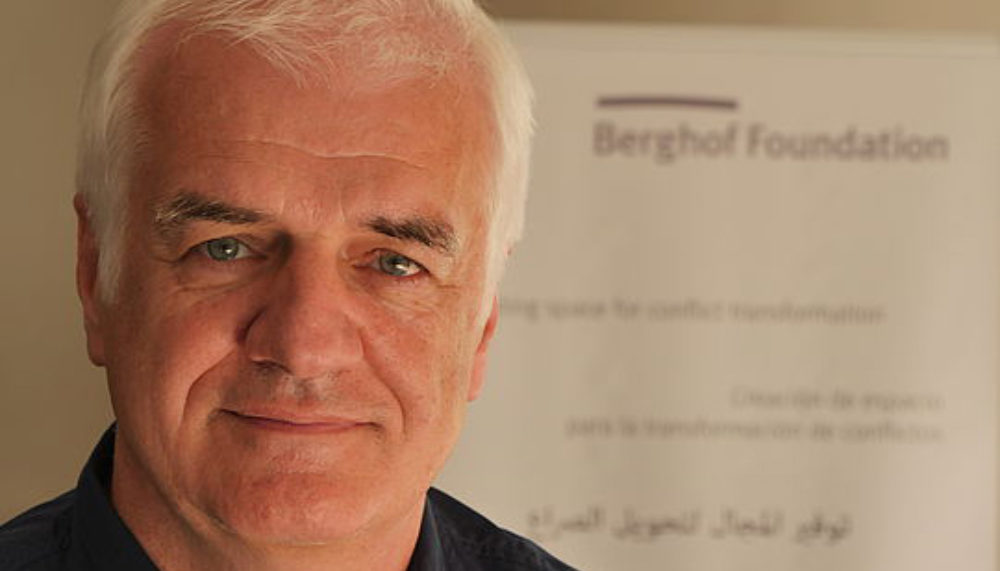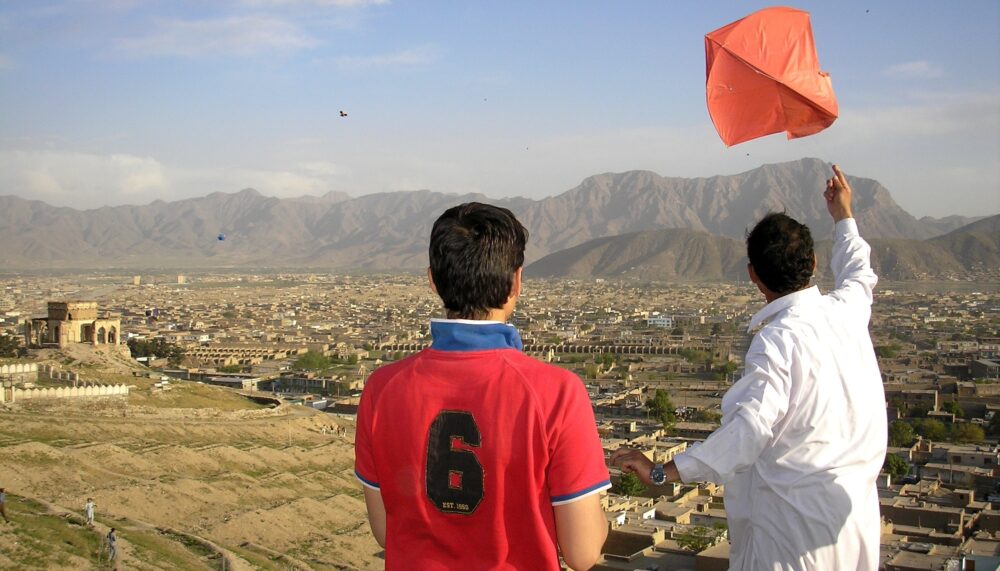BLOG POST | 4 Sept 2019
Thoughts on the anniversary of the start of the Second World War

I am writing this blog post on the flight back from Kabul to Germany...
By Hans-Joachim Giessmann
I am writing this blog post on the flight back from Kabul to Germany. In Afghanistan, my team met with important political and civil society actors who, despite differing political opinions, share the conviction that the war must finally and forever be ended. The possibility of a lasting peace is opening up at a special time.
The Second World War began on 1 September 1939 with the invasion of Poland by the German Wehrmacht. It is pure coincidence that, with the 80th anniversary of the start of that conflict and the 100th anniversary of the signing of the armistice in November 1918 which ended the First World War, two major anniversaries were commemorated in quick succession.
For me, this period of remembrance has resonated in a very personal way.
As a young soldier, my grandfather fought in the ranks of the Imperial German Army on the Western Front in Belgium and France. He almost lost his eyesight in a trench near Ypres in Belgium when chemical weapons were used in the grueling battle to gain ground. My grandfather never spoke to his grandchildren about what he had experienced. I only learned of what he went through a few years ago when I found his war diary. On the one hand, the diary was full of everyday, sometimes banal, descriptions of his personal experiences, but on the other hand, it powerfully conveyed the underlying fear and impotence of not being able to escape the horrors of war. I remember my grandfather today as a kind man who, in his later years as a pacifist and a member of the Confessing Church, distanced himself from the militarism of the National Socialists.
My grandfather never spoke to his grandchildren about what he had experienced. I only learned of what he went through a few years ago when I found his war diary.
However, my grandfather could not prevent his son, my father, from being drafted into the Wehrmacht in 1944 when the land war finally reached Germany itself. My father, too, never spoke to us at length about what he had experienced. Here merely told us that in the last days of the war he had sent members of the Volkssturm militia and the Hitler Youth, some of the latter just 14 or 15 years old, back to their homes from a position south of Berlin and then deserted himself. Somehow, he managed to make it home to his parents, who hid him until the end of the war.
There are no diaries like my grandfather's; had there been, perhaps I would have better understood my father's motives for keeping silent about his experiences until the end of his life. It was only a few years ago that I learned that in the first few years of the Second World War, as a young physicist, he was involved in Werner Heisenberg's research, which was important for the war and potentially contributed to its length. Unfortunately, I know more about his later collaboration with Heisenberg after the war than I do about his earlier time. It still troubles me that I did not ask more questions. However, in my memory, my father was also a pacifist for the rest of his life.

My father’s and grandfather’s lived pacifism influenced important decisions in my own, fortunately war-free life. First as a disarmament expert, later as a peace researcher and finally as the Executive Director of an organisation dedicated to non-violent conflict transformation. I have been professionally involved for almost 40 years in exploring the causes of wars and describing ways to peace, and – since joining the Berghof Foundation – working together with partners in war-affected societies who are seeking a way out of the dynamics of armed violence.
For some years now, I have been personally concerned about ending the war in Afghanistan, a war that has been the backdrop to my entire professional life since the start of the Soviet invasion 40 years ago (coincidentally, another significant anniversary). I am glad that the Berghof Foundation’s knowledge and abilities to make a substantial contribution are being requested as support by those involved in the conflict and will continue to be in demand. It would be the greatest achievement of my career – and one which honours my father’s and grandfather’s tradition of pacifism after their experience of war – to be able to make a small contribution to ending this challenging conflict.
Media contact
You can reach the press team at:
+49 (0) 177 7052758
email hidden; JavaScript is required


